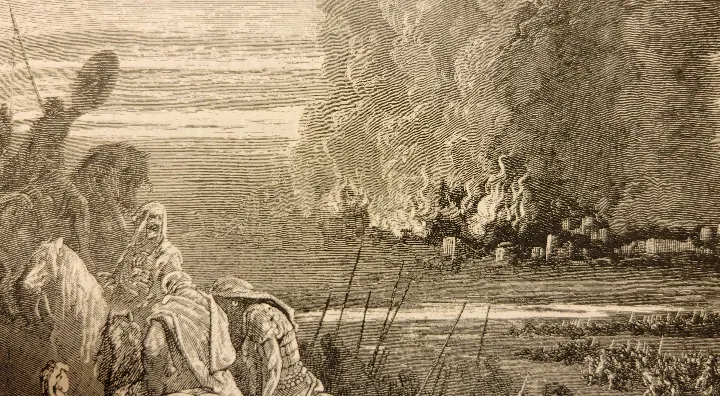Heavenly Kingdoms - Chapter 3
Letter 5 – Margaret Playford to Anne Charlston, 1st of June, 1856
Dear Annie,
Of course I am your dearest friend and encircle you like the Moon around the Earth whenever you need my so-called bright heart to shine upon your troubled night. I will admit that, not having spent much time in the presence of your father of late, I was taken aback by the violence of his outburst, having not considered that he had become so greatly detached from reality. It is a sad business indeed dear Annie; I pray for you always and ardently admire the courage of your vigil.
Also, I hope you do not mind, but I will admit to being intrigued by the words your father used in his lashing of the parson, being, as they were, seemingly full of some kind meaning, and thinking them perhaps metaphorically charged, but not a whit inclined to this type of thinking myself, I showed the words to my betrothed (I hope you do not mind, but I share all with him) as, as you may recall, he spins poetry from time to time which means little to me but all men must have their little diversions even if we think them the most pointless of exercises (Well, I share almost everything). Here, for example, is a sonnet he wrote during our courting which I think is tolerably cute though surely the most ordinary affair for a budding wordsmith:
O dearest fate-intended, be discreet
Lest all the world should claim you as did I,
For beauty such as yours should not compete
With all the ill-cut parodies that try;
For effortless is that which blinds the stars
And shames the antic sun to restless sleep,
Despite your claim to wearing wind-scrawled scars,
For modesty preserves what time shan't keep.
Alas, I make a claim no angel dares
For nothing may contain what soars divine,
And if among the heavens love despairs
Remember that true heart most humbly thine.
Thus I, among all other visions, swear:
That to these eyes none ever shone so fair.
Anyway, I showed him your father’s words and do you know what he said? The infuriating man! He said, “either it is analogous to something i.e. poetry: in which case meaning can only be determined by the reader and should not be interpreted by others for others to hear, or it is analogous to nothing i.e. nonsense: in which case...
Dear Annie,
Of course I am your dearest friend and encircle you like the Moon around the Earth whenever you need my so-called bright heart to shine upon your troubled night. I will admit that, not having spent much time in the presence of your father of late, I was taken aback by the violence of his outburst, having not considered that he had become so greatly detached from reality. It is a sad business indeed dear Annie; I pray for you always and ardently admire the courage of your vigil.
Also, I hope you do not mind, but I will admit to being intrigued by the words your father used in his lashing of the parson, being, as they were, seemingly full of some kind meaning, and thinking them perhaps metaphorically charged, but not a whit inclined to this type of thinking myself, I showed the words to my betrothed (I hope you do not mind, but I share all with him) as, as you may recall, he spins poetry from time to time which means little to me but all men must have their little diversions even if we think them the most pointless of exercises (Well, I share almost everything). Here, for example, is a sonnet he wrote during our courting which I think is tolerably cute though surely the most ordinary affair for a budding wordsmith:
O dearest fate-intended, be discreet
Lest all the world should claim you as did I,
For beauty such as yours should not compete
With all the ill-cut parodies that try;
For effortless is that which blinds the stars
And shames the antic sun to restless sleep,
Despite your claim to wearing wind-scrawled scars,
For modesty preserves what time shan't keep.
Alas, I make a claim no angel dares
For nothing may contain what soars divine,
And if among the heavens love despairs
Remember that true heart most humbly thine.
Thus I, among all other visions, swear:
That to these eyes none ever shone so fair.
Anyway, I showed him your father’s words and do you know what he said? The infuriating man! He said, “either it is analogous to something i.e. poetry: in which case meaning can only be determined by the reader and should not be interpreted by others for others to hear, or it is analogous to nothing i.e. nonsense: in which case...




